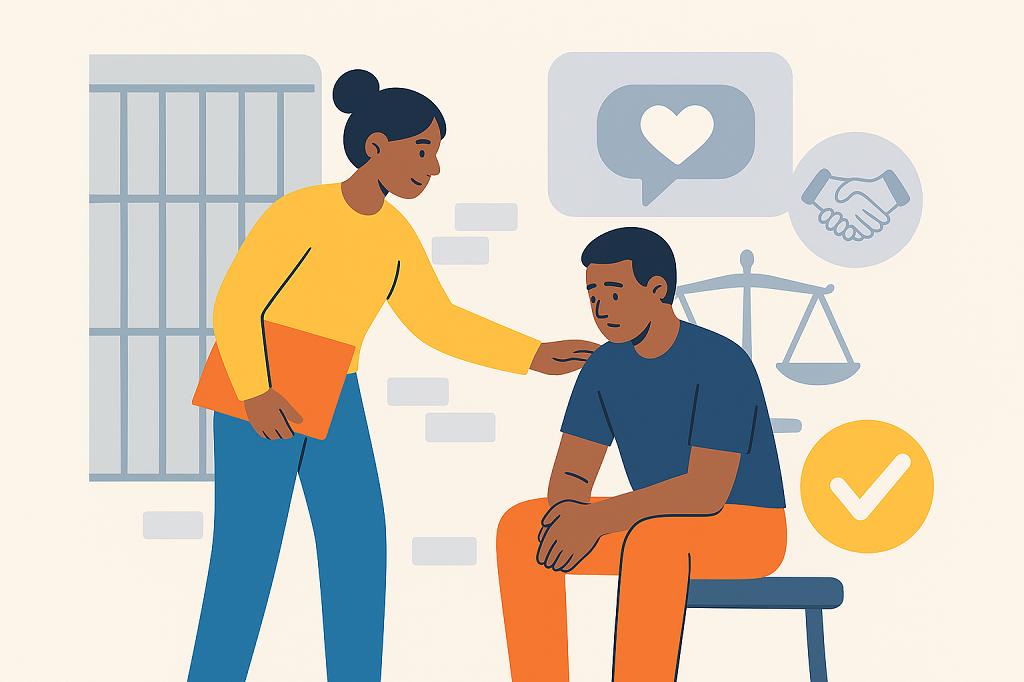Peer Support in the Criminal Justice System
Peer support has become an increasingly powerful approach within the criminal justice system, offering a more human and compassionate way of addressing the needs of individuals in contact with the system. At its heart, peer support draws on the strength of shared experience. Those who have faced similar challenges—whether imprisonment, substance use, or mental health struggles—are uniquely placed to provide guidance, empathy, and encouragement to others on a similar journey.
Unlike traditional services, peer support focuses on connection rather than authority. For people in the criminal justice system, this distinction is vital. The system can often feel cold, impersonal, and punitive, leaving individuals feeling isolated and powerless. A peer supporter brings a different perspective: someone who has “been there” and understands the struggles firsthand. This creates an environment of mutual respect and trust, which is often missing in other professional relationships.
The benefits of peer support in criminal justice settings are wide-reaching. It can help reduce re-offending by fostering a sense of belonging, accountability, and hope for a better future. Peer supporters act as role models, showing that change is possible, even after setbacks. They can also help individuals navigate the complex system of probation, rehabilitation services, housing, and employment, offering practical advice alongside emotional encouragement.
Importantly, peer support is not a one-way street. The relationship is grounded in mutuality and reciprocity—both the peer supporter and the person being supported gain strength, insight, and empowerment. For peer supporters, the role provides an opportunity to use their lived experience in a positive, transformative way, turning past difficulties into a resource for good.
In a system often focused on punishment rather than healing, peer support stands as a reminder that people can change, grow, and rebuild their lives when given the right support. By centering lived experience, the criminal justice system can move closer toward rehabilitation, community integration, and real social change.
